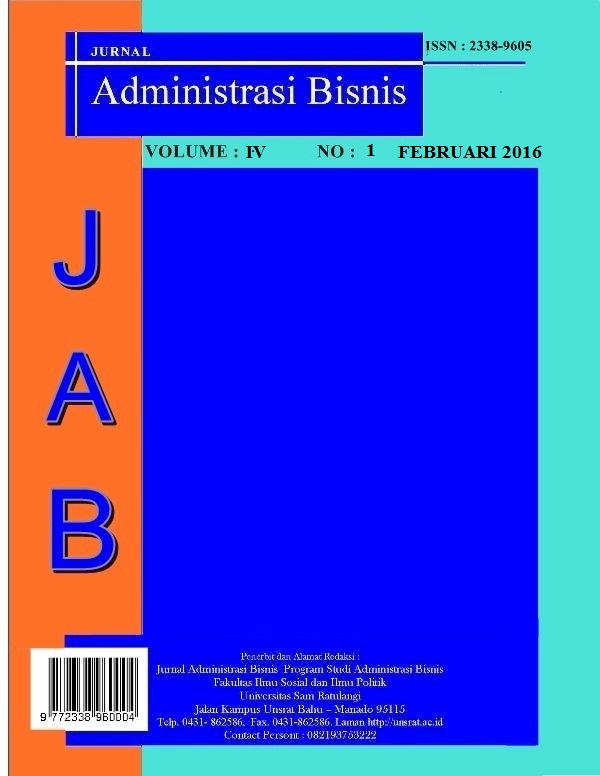ANALISIS KREDIT MACET (PT. BANK SULUT, TBK DI MANADO)
DOI:
https://doi.org/10.35797/jab.v4.i1.%25pAbstract
This study is based on that: The extension of credit by the bank must pay attention to the principles of sound lending. To gain confidence, such as the explanation of Article 8 of Law No. 10 of 1998 on banking, namely: "In memberkan credit, banks are required to conduct thorough research on the character (character), ability (capacity), capital (capital), reserves ( collateral), the economic condition of the debtor (condition ofeconomy). This is to keep possibilities diharpkan not happen. "The purpose of this study was to determine what factors-factors that cause bad loans to PT Bank Tbk in Manado North Sulawesi. This study used descriptive qualitative method by using analysis of financial ratios of NPLs in the calculation of non-performing loans through the financial balance sheet of the Bank. These bad loans are known term collectability or non-performing loans and the global banking industry. Bank Indonesia classifies non earning credits in three categories: Category less smooth, Doubtful and Loss. It can be seen that the collectibility of the loans less lancer in 2013 fell by 74.39%. While the collectibility of doubtful loans only increased by 36.48%. And for collectability loans jammed category fell by 11.98%. A large amount of non-performing loans in 2012 amounted to Rp.38,162 million and in 2013 the number of non-performing loans fell by Rp.30.820 million. The percentage decline of 19.24%. This decrease indicates that the management PT.Bank Sulut in performance to overcome the problems of bad loans is very positive and good, especially in efforts collectibility of the loans in the category far less smooth and jammed.Kata Kunci : Kredit MacetDownloads
Published
09-02-2016
How to Cite
Mewoh, F. C., J Sumampouw, H., & F Tamengkel, L. F. T. (2016). ANALISIS KREDIT MACET (PT. BANK SULUT, TBK DI MANADO). JURNAL ADMINISTRASI BISNIS , 4(1). https://doi.org/10.35797/jab.v4.i1.%p
Issue
Section
Articles



